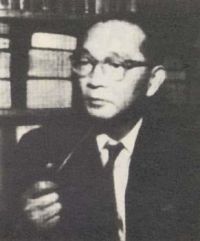Lin Yutang
Lin Yutang (林语堂) was a 20th-century Chinese author who wrote several notable English novels.
Born in 1895 to a Christian minister in Fujian Province, he received a rudimentary education from a private teacher with solid traditional knowledge. But he was heavily influenced by Western culture during his education at St. John’s University in Shanghai in 1912. After receiving a bachelor’s degree from the famous religious school in the city, whose past is replete with the concessions, Lin went on to study at Harvard University in 1919, where he obtained his master’s in literature. Then he moved to Germany and obtained a Ph.D. in philology at Leipzig University.
Lin returned to China in 1923 and worked as a professor at Peking University. He also became the dean and director of the English Department at Beijing Women’s Normal University. In 1924, he became one of the chief editors of Tatler Weekly (Yusi). In 1926, he taught at Xiamen University, where he wrote many essays and studied philology. In 1927 he was the secretary of the Foreign Ministry ran by the Kuomintang.
An essayist with strong sense of humor, he became chief editor of The Analects in 1932, a biweekly journal of philosophical stories. His leisurely style ran were at odds with left-wing literary writers. In 1934, he launched the periodical Human World, and the following year, the magazine Cosmic Wind.
Passionate about popularizing Chinese literature and culture, Lin started a series of English books in 1935, including the widely acclaimed Moment in Peking, Between Tears and Laughter and My Country and My People. The books become the bestsellers in the West, and Lin was nominated for the Nobel Prize in Literature several times in the 1970s.
The rest of Lin’s life was spent in several different countries. In the 1930s, he moved to the U.S. and mainly lived there. In 1944, he returned to Chongqing to give lectures. In 1954, he was in Singapore to help set up Nanyang University for overseas Chinese. But he quit soon after, serving briefly as the university’s president, as the struggle between the school’s left and right wings made it unpleasant.
Lin settled in Taiwan in 1966 and received an appointment as research professor at the Chinese University of Hong Kong the following year.
Besides being a literary scholar, Lin was an inventor. He helped push the Chinese typewriter during the anti-Japanese Aggression War (1937-1945).
Lin had a wife, Lin Tsuifeng.
He died March 26, 1976, at the age of 81 in Hong Kong.
